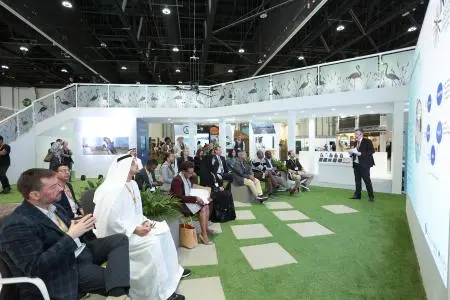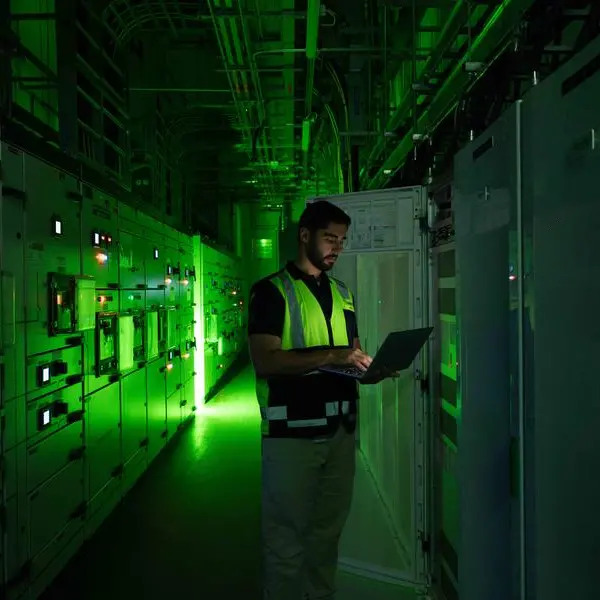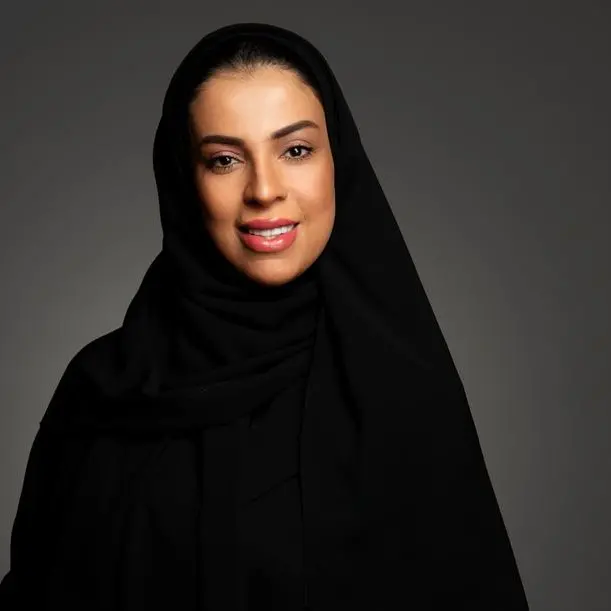PHOTO
- IRIS-3 developed under the Abu Dhabi Global Environmental Data Initiative by its founding partners Environment Agency – Abu Dhabi (EAD) and the United Nations Environment Programme (UNEP)
- IRIS will provide better and more transparent access to environmental information and make environmental reporting by, and between, local, national, regional and global levels easier, faster and more unified.
Abu Dhabi – A new socio-technology platform developed under the Abu Dhabi Global Environmental Data Initiative (AGEDI) aims to fast-track environment assessments and save governments around the world thousands of staff hours reporting environmental conditions and performance contributing to sustainable development.
Launched today at the World Urban Forum in Abu Dhabi, the Indicator Reporting Information System-3 (IRIS-3) is a web platform, available as a remotely-hosted or intranet app, that makes the assessment and reporting of environmental information at local, national, regional and global scales easier, faster and more unified.
Developed by the long-standing AGEDI implementation partnership between Environment Agency – Abu Dhabi (EAD) and the United Nations Environment Programme (UNEP), IRIS-3 has the potential to transform state-of-environment reporting, helping decision-makers to take informed and timely action to improve our natural world.
Around the world, at local, national, regional and global levels, government agencies, NGO’s and the private sector produce numerous environmental status and performance reports every year. Reporting manually can be a slow and labour-intensive process. When stakeholders need status updates on quarterly or monthly basis, report production becomes a significant drain on institutional resources.
IRIS-3 will use indicators to automatically convert data collected from an organisation’s routine environmental monitoring programmes into a standardised report, while still allowing each organisation to add its commentary on status, trends, causes and consequences.
The human and machine-generated reports produced through IRIS-3 can then be easily aggregated at a national, regional or global level to provide a wider picture of the state of the environment.
Today’s launch of IRIS-3 marks the first time the platform is available with automatic end-to-end reporting, and organisations are now invited to register their interest in using the free-of-charge application.
Launching IRIS-3 at the World Urban Forum, Her Excellency Dr Shaikha Salem Al Dhaheri, Secretary General of the Environment Agency - Abu Dhabi, which is guiding IRIS development for sub-national reporting level, said: “Monitoring and reporting on Abu Dhabi’s environment is a hugely important part of what we do at the agency. Whether it is the water quality at Saadiyat Beach or the air quality in our main residential areas, data helps us take evidence-based decisions to respond to environmental challenges, protect ecosystems and promote a healthy environment".
“IRIS will allow us to automate the process of reporting on the state and trends in the environment whilst ensuring the deep local knowledge of our scientists is embedded in the report narrative. I believe this system has the potential to transform the way countries report to stakeholders and will contribute to progress in national, regional and global efforts to protect and preserve our environment for future generations" HE Al Dhaheri added.
She noted that “The launch of IRIS-3 is an exciting moment and I am proud of Abu Dhabi’s central role in innovating this game-changing globally-deployable technology,” she added. “It is part of our nearly two-decade long commitment to equip policymakers with actionable, timely information to inform and guide critical decisions towards a sustainable future.”
Joyce Msuya, UNEP Deputy Executive Director, said: “Since 2002, UNEP and the Environment Agency – Abu Dhabi have worked in close partnership to overcome systemic obstacles to data-driven policy making and to deploy the solutions we develop globally. Indicator Reporting Information System-3 represents a step-up in our efforts to develop precise and real-time environmental assessments that can help us address the complex challenges of the natural world.
IRIS has attracted a great deal of interest; at the regional level, UNEP, in partnership with the UN Economic Commission for Europe (UNECE), has customized IRIS in support of the implementation of the Shared Environmental Information System (SEIS) in the 54 Pan-European countries. At the national level, earlier versions of IRIS have been installed on the Government Infrastructure in Bosnia and Herzegovina, Cameroon, Montenegro, Mauritius, and Samoa to support State of the Environment and the implementation of the Framework for the Development of Environmental Statistics (FDES).
IRIS has attracted interest from outside Government hierarchies; UNEP deployed a thematic derivative for the Monitoring the Illegal Killing of Elephants (MIKE) programme that runs under the Convention on International Trade in Endangered Species of Wild Fauna and Flora (CITES), to provide information for elephant range states to support management and enforcement decisions toward long-term management of their elephant populations.
The launch of IRIS-3 represents the start on an exciting next phase of the UNEP-Abu Dhabi partnership as we deploy IRIS with new users in the UAE, West Asia and globally and develop a global community IRIS deployments and users.
Ahmed Baharoon, Acting Director AGEDI said: “Much of the long-term, in-situ environmental monitoring data upon which national, regional and global assessments depends originates from sub-national level entities. As well as reducing the reporting burden at the institutional level, IRIS provides a mechanism for information to be exchanged and converted into actionable insight at local, national, regional and international scales.”
“The establishment of AGEDI in 2002 by H. H. Sheikh Khalifa bin Zayed Al Nahyan, President of the United Arab Emirates, as a mechanism to enable sub-national entities, especially in less-developed economies, to contribute to the local, national and global sustainability challenges is a superb example of Abu Dhabi’s commitment to innovation, sustainability and international development.”
IRIS is a free of cost web-based application and will also be available as an on-premise solution that runs on local servers for organisations that require their data to be kept in-house. The aim is for IRIS to eventually be released as an open source.
IRIS envisions a Shared Knowledge Base (SKB) that will allow reporting organisations to share algorithms, templates and experiences with other IRIS users around the world.
More information on IRIS is available here.
Ends-
About Environment Agency – Abu Dhabi (EAD)
Established in 1996, the Environment Agency – Abu Dhabi (EAD) is committed to protecting and enhancing air quality, groundwater as well as the biodiversity of our desert and marine ecosystem. By partnering with other government entities, the private sector, NGOs and global environmental agencies, we embrace international best practice, innovation and hard work to institute effective policy measures. We seek to raise environmental awareness, facilitate sustainable development and ensure environmental issues remain one of the top priorities of our national agenda.
About Abu Dhabi Global Environmental Data Initiative (AGEDI)
The Abu Dhabi Global Environmental Data Initiative (AGEDI) was launched on 2 September 2002, at the World Summit on Sustainable Development (WSSD) in Johannesburg by the United Arab Emirates (UAE) as a Type II Initiative. Inaugurated in 2002 by H. H. Sheikh Khalifa bin Zayed Al Nahyan, President of the United Arab Emirates, AGEDI was formed to facilitate quality environmental data that equips policy-makers with actionable, timely information to inform and guide critical decisions.
AGEDI works in close coordination with long-term partners Environment Agency- Abu Dhabi (EAD) and the United Nations Environment Programme (UNEP) to maximise information exchange for improved decision-making at the local, national, regional and global levels.
About United Nations Environment Programme (UNEP)
The United Nations Environment Programme (UNEP) is the leading global environmental authority that sets the global environmental agenda, promotes the coherent implementation of the environmental dimension of sustainable development within the United Nations system, and serves as an authoritative advocate for the global environment.
For media enquiries, please contact:
EAD Press Office:
Environment Agency- Abu Dhabi
Tel: +9712 693-4637
Mobile: +97150 442-5096
Email: pressoffice@ead.ae
Website: www.ead.ae
Stay updated with EAD’s latest news! Click below to follow, like and subscribe:
@EnvironmentAgencyAD
@environmentabudhabi
@EADTweets
Environment Agency - Abu Dhabi (EAD)
Disclaimer: The contents of this press release was provided from an external third party provider. This website is not responsible for, and does not control, such external content. This content is provided on an “as is” and “as available” basis and has not been edited in any way. Neither this website nor our affiliates guarantee the accuracy of or endorse the views or opinions expressed in this press release.
The press release is provided for informational purposes only. The content does not provide tax, legal or investment advice or opinion regarding the suitability, value or profitability of any particular security, portfolio or investment strategy. Neither this website nor our affiliates shall be liable for any errors or inaccuracies in the content, or for any actions taken by you in reliance thereon. You expressly agree that your use of the information within this article is at your sole risk.
To the fullest extent permitted by applicable law, this website, its parent company, its subsidiaries, its affiliates and the respective shareholders, directors, officers, employees, agents, advertisers, content providers and licensors will not be liable (jointly or severally) to you for any direct, indirect, consequential, special, incidental, punitive or exemplary damages, including without limitation, lost profits, lost savings and lost revenues, whether in negligence, tort, contract or any other theory of liability, even if the parties have been advised of the possibility or could have foreseen any such damages.




















